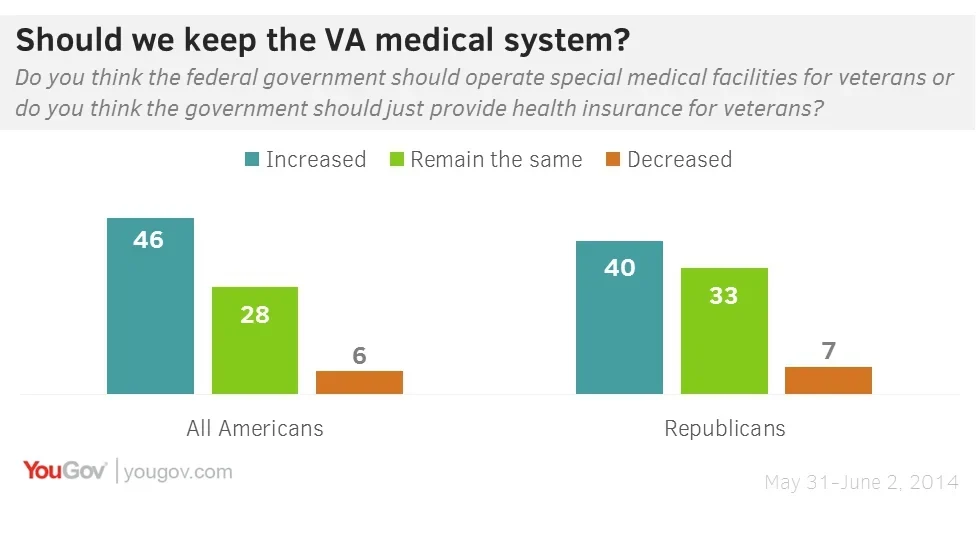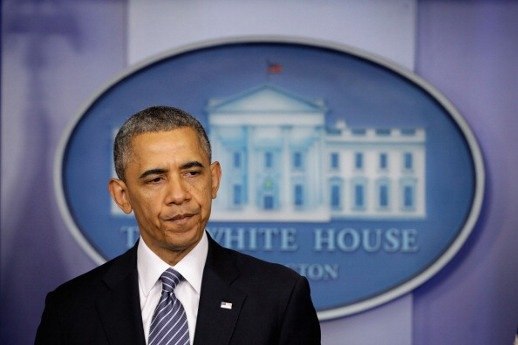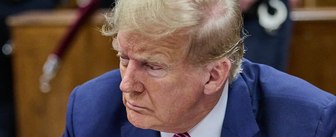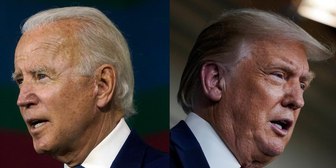Most people think that Shinseki's decision to resign was correct, and President Obama's approval ratings have begun to drop as the scandal develops
Yes, General Eric Shinseki did the right thing by resigning from his post as Secretary for Veterans Affairs, according to most Americans, but that’s not where the scandal ends. In the latest Economist/YouGov Poll, 79% of adults believe more officials in the Department of Veterans Affairs need to resign.
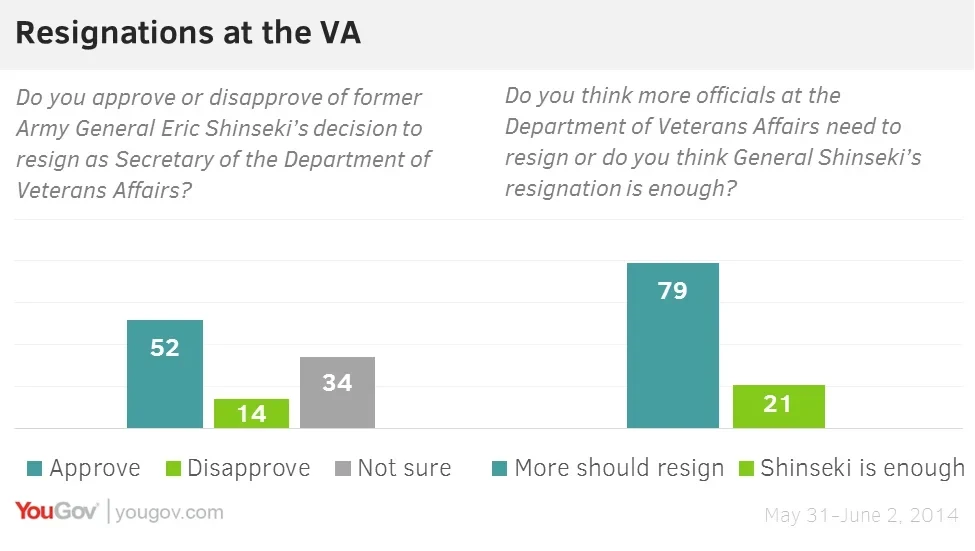
What may be unusual about this scandal is that – unlike so many other scandals in recent years -- most opinions about the scandal are not partisan. Majorities of Democrats, Independents and Republicans approve of Shinseki’s decision to resign; three-quarters or more in each group want to see more resignations.
The poll suggests that this scandal also has the potential to impact the President directly. Although blame for the problems at VA hospitals is spread among the President, officials at the VA, and Congress (Republicans, however, as has been the case on many issues concerning President Obama, give him the greatest share of the blame), as well as others, the President gets somewhat negative reviews for his performance overall.
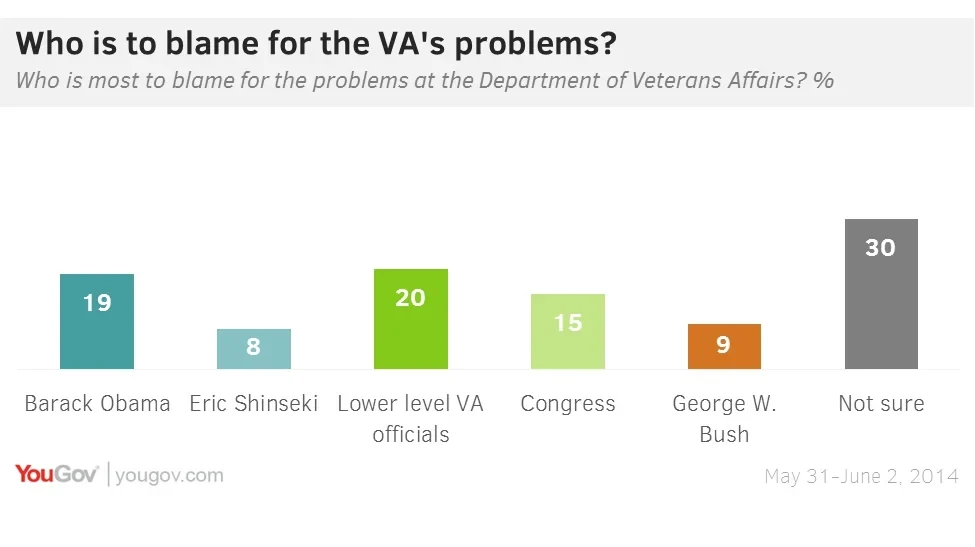
33% of the public approves of how the President is handling the VA situation, 39% do not. And among Democrats, a majority approve, though nearly one in five do not.
The President’s overall approval rating has slipped back to 41% -- about where it had been until announcements of higher than expected enrollments under the Affordable Care Act and some good economic news appeared to give his approval rating a boost.
One month ago, the President’s approval rating was 46%, his best rating in a year. And the tracking graph shows how his approval had been on a slight upward trajectory. But this week’s point is below that line, and about where it was when approval trended upwards. The change in the last month has been especially notable among Democrats: in early May, 87% of Democrats approved of the way the President was handling his job; this month just 73% do – a drop of 14 points.
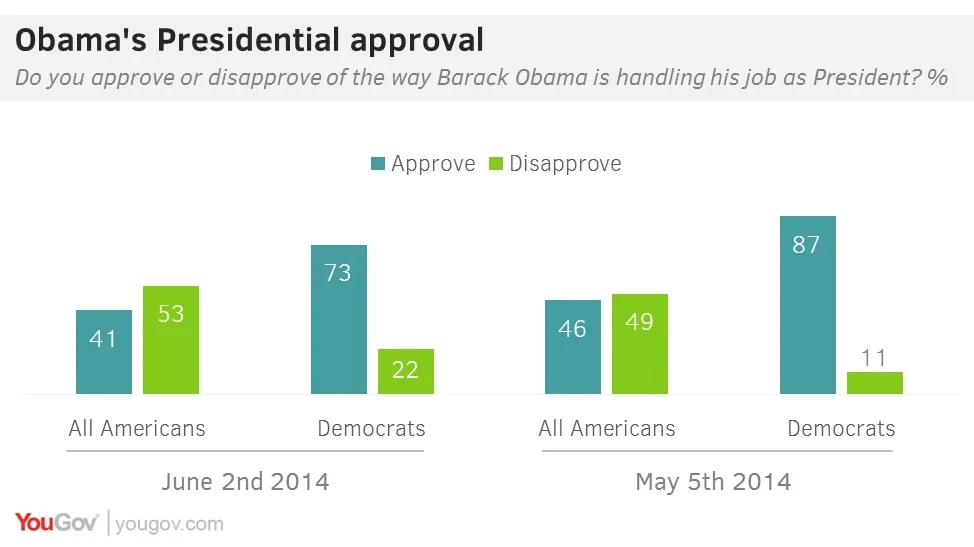
One in four Democrats now have an overall unfavorable opinion of the President; in early May, only 12% of Democrats did.
The immediate solution to the scandal – the resignation of Shinseki – doesn’t seem to solve the problem at VA hospitals – at least not yet. Fewer than one in four say Shinseki’s resignation will lead to improvements in the Department.
That may be because Americans don’t think highly of the treatment veterans receive at VA hospitals. Not only do Americans believe veterans have longer wait times for medical care at VA centers than non-veterans receive elsewhere, but nearly half think veterans receive worse care.
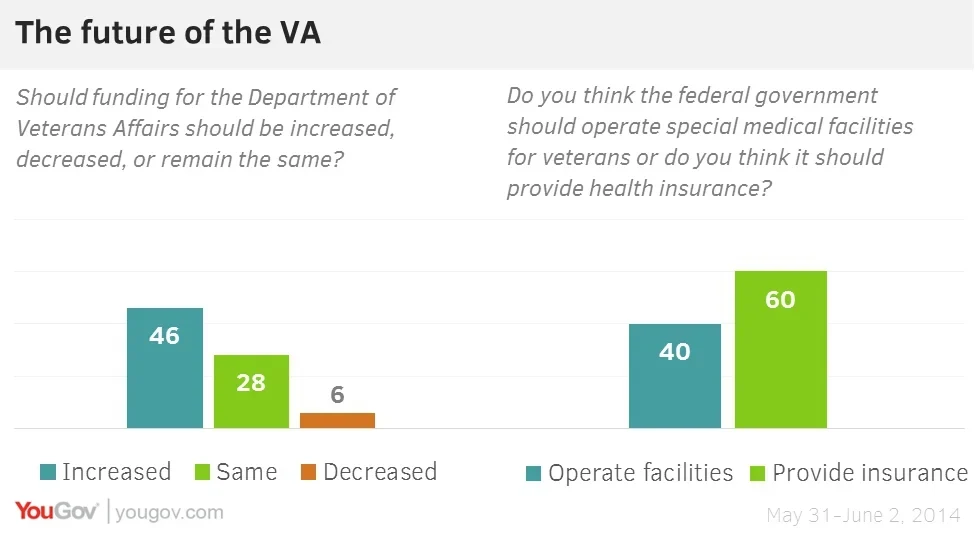
This particular scandal – with extremely long waits times for care at VA facilities and the manipulation of computer records to hide the wait – is not the first time VA Hospitals have faced criticism. In 2007, charges of neglect at Walter Reed Army Medical Center resulted in the resignation of the Secretary of the Army, as well as a review of the military health care system.
The current criticism of the scandal and the system is especially intense among veterans in this poll. 73% of veterans approve of Shinseki’s resignation; 93% say there should be even more resignations.
But like the rest of the public, veterans aren’t hopeful that anything will change. Just 29% of them think Shinseki’s resignation will lead to improvements.
Family members of those who have even received treatment at a VA facility as well as veterans are much more negative about the quality of care veterans receive through the VA. Nearly three in four veterans say VA hospitals give worse care that that given to non-VA centers.
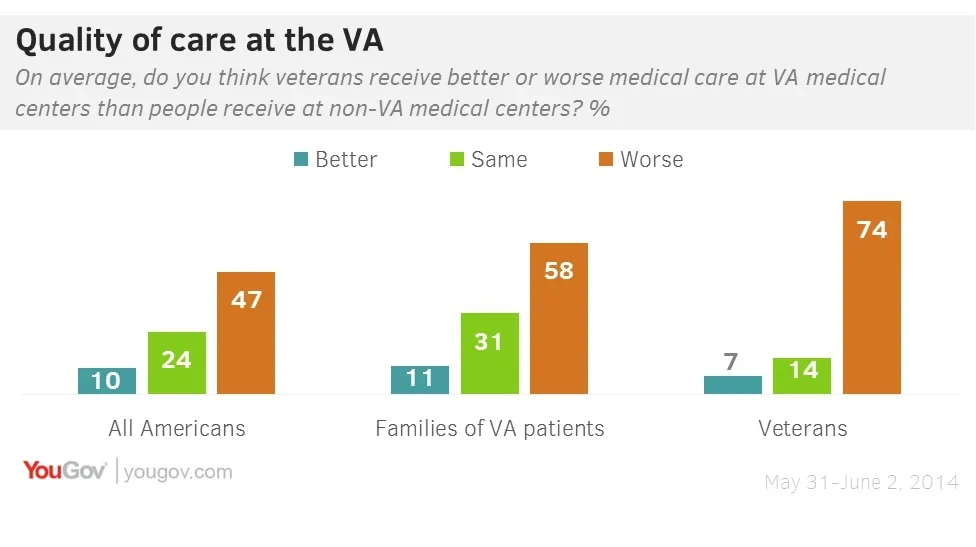
In fact, more Americans believe that the government should just provide health insurance for veterans and allow them to access medical care on their own than think the government should operate separate medical facilities for veterans. By two to one, veterans agree. The families of those who have received care at the VA also agree.
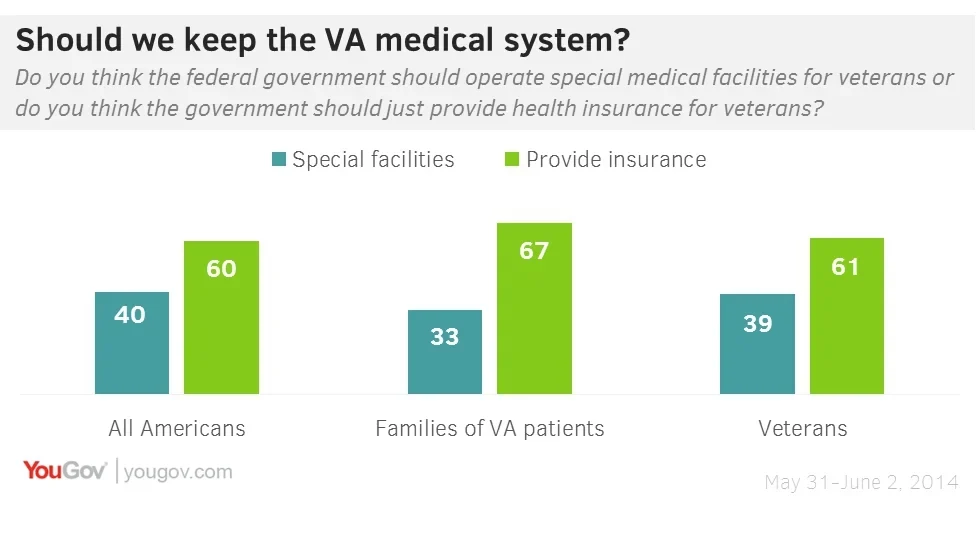
73% of the public overall – along with 86% of veterans – believe the government is not doing enough for veterans. This support is reflected in the finding that despite the latest VA scandal, relatively few want to cut spending to the Department of Veterans Affairs. Nearly half would increase funding.
Even 40% of usually budget-conscious Republicans would increase funding to the VA; just 7% of Republicans would reduce funding there.
